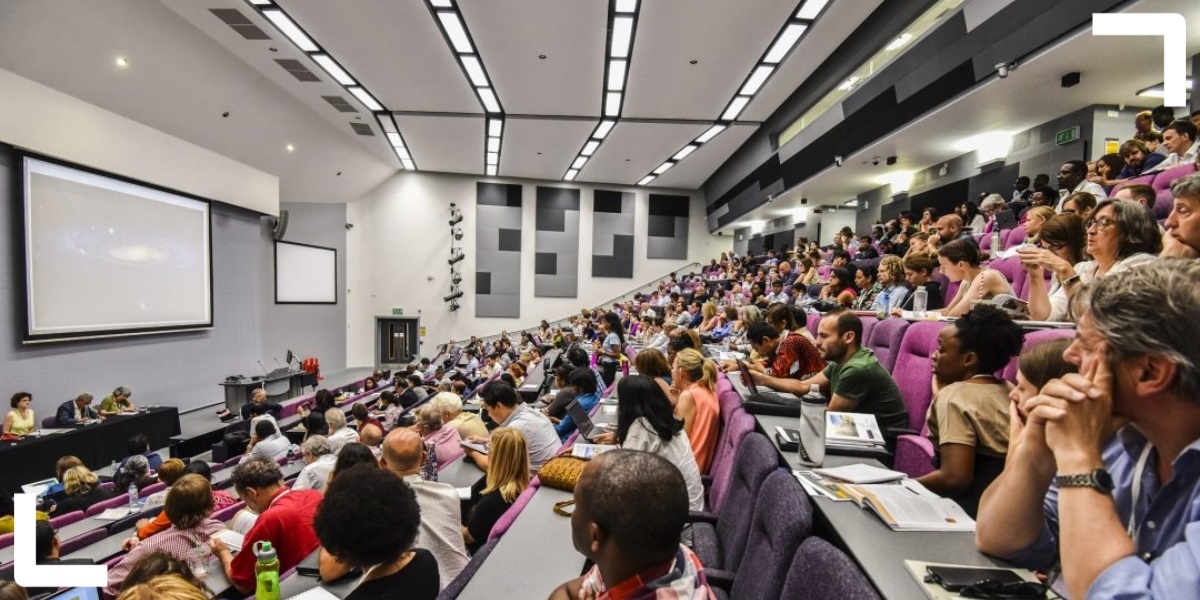Members of the African Cities Research Consortium (ACRC) are convening two panels at this year’s Development Studies Association Conference, focusing on experiences of decoloniality in action and investigating the politics underpinning crises in African cities.
Being held between 28-30 June 2023 at the University of Reading, this year’s conference theme is “Crisis in the Anthropocene: Rethinking connection and agency for development”.
Read on for a summary of the panels ACRC is involved in and view the full conference programme here.
Experiences in decolonial research and practice: In search of connection and agency
Wednesday 28 June | 14:30-16:00 BST | View full abstract
Convened by Daniela Beltrame and Beth Chitekwe-Biti from SDI – co-leads of ACRC’s informal settlements domain – this panel will be a horizontal exchange space, which is one of SDI’s preferred practices for emancipatory change. Using a multiformat approach, the session aims to create a space for participants to share their experiences of decoloniality in action, especially around knowledge co-production and collaborations between grassroots communities and development institutions.
Submissions that centred on navigating power imbalances, creating space for counter-hegemonic narratives, and claiming and maintaining agency and decisionmaking power while being from historically marginalised backgrounds were especially encouraged.
Accepted contributions include:
- Can participatory video engage older people and amplify their voices to bring new perspectives on healthy ageing in the Anthropocene?
Soledad Muniz (InsightShare), Mary Manandhar (independent consultant) and Tricia Jenkins (InsightShare) - Embodying a decolonial notion of empowerment: Perceptions among handicraft workshop beneficiaries in Egypt
Maha Gaad (Institute of Development Studies) - Re-centring resistance and the Tal’at movement: Lessons from Palestinian feminist, anticolonial, emancipatory mobilisations
María González Flores (University of A Coruña) - Scenes from El Alto: The potential of participatory video-making for a decolonial research praxis
Philipp Horn and Olivia Casagrande (University of Sheffield) - International development interventions and peace-building in local communities: The case of the European Union (EU) micro project programme in communities of the Niger-Delta region of Nigeria
Victor Ogharanduku (Save the Children International), Adekunle Theophilius Tinuoye and Sylvanus Adamade (Michael Imoudu National Institute For Labour Studies) - Co-production in research: Reflections on community knowledge from Harare, Zimbabwe
Teurai Nyamangara (Dialogue on Shelter Trust) - Value of working with community actors in co-producing knowledge: Lessons from ACRC and ARISE in Freetown, Sierra Leone
Francis Anthony Reffell (Centre of Dialogue on Human Settlement and Poverty Alleviation – CODOHSAPA)
Investigating the politics of crisis in African cities
Thursday 29 June | 9:00-17:50 BST | View full abstract
This panel will be convened by ACRC’s deputy CEO Sam Hickey, political settlements research lead Tim Kelsall, CEO Diana Mitlin and Accra city lead Abdul-Gafaru Abdulai. It will explore the portrayal of African cities as being in perpetual crisis – through climate change, conflict-driven migration, precarious living conditions and the failure of urbanisation to drive economic transformation – and discuss new research that shows how politics shapes the agency and governance required to address such “crises”.
Building on ACRC’s conceptual framework, sessions will focus on how political settlements analysis can help advance our understanding of the scope for promoting urban reform in African cities, along with how politics and city systems are shaping urban development challenges and solutions in specific policy domains.
Accepted papers include:
- Political settlements and the “urban crisis” in Africa
Tim Kelsall (ODI) and Abdul-Gafaru Abdulai (University of Ghana Business School) - Comparing the politics of informal settlements in Freetown and Kampala
Sam Hickey (The University of Manchester), Badru Bukenya (Makerere University), Peter Kasaija (Makerere University), Jamie Hitchen (University of Birmingham) and Braima Koroma (Sierra Leone Urban Research Centre and Njala University) - The politics of housing in informal settlements: Lived experiences of the essentialness versus the expediency of housing in Mukuru Kayaba, Nairobi
Ruth Murumba (Moi University) - Cementing national politics in the city: The everyday politics of construction in Addis Ababa, Ethiopia
Camille Pellerin (Uppsala University) and Dalaya Esayiyas - Healthy diets as an entry point for urban reform in African cities
Nicola Rule (ICLEI Africa), Katy Davis (Liverpool School of Tropical Medicine), Rachel Tolhurst (Liverpool School of Tropical Medicine), Cecilia Tacoli (International Institute for Environment and Development) and Paul Currie (ICLEI Africa) - The politics of land and connectivity in African cities
Tom Goodfellow (University of Sheffield), Liza Cirolia (University of Cape Town), Ransford Acheampong and Abdifatah Tahir (The University of Manchester) - Low-income rental housing dynamics in African cities
Miriam Maina (The University of Manchester), Ola Uduku (University of Liverpool) and Alexandre Apsan Frediani (International Institute for Environment and Development) - Structural transformation in Accra: Drivers and constraints
Michael Danquah (UNU-WIDER), Abdul Malik Iddrisu (Institute for Fiscal Studies, UK), Williams Ohemeng (Ghana Institute of Management and Public Administration) and George Domfe (University of Ghana) - Understanding the politics of crisis in African cities through the lens of safety and security: An urban comparison
Paula Meth (University of Sheffield), Patience Adzande (The University of Manchester) and Stephen Commins (UCLA) - Surviving cities: Urban refugee economies in Africa
Peter Mackie, Patricia Garcia Amado and Alison Brown (Cardiff University) - People’s perspectives of public participation in local development in South Africa
Katrin Hofer (ETH Zurich)
This year’s DSA Conference will take place as a hybrid event, organised and hosted by the University of Reading. Follow proceedings on Twitter using the hashtag #DSA2023.
Header photo credit: Global Development Institute, The University of Manchester.
The African Cities blog is licensed under Creative Commons Attribution-NonCommercial-NoDerivatives 4.0 International (CC BY-NC-ND 4.0), which means you are welcome to repost this content as long as you provide full credit and a link to this original post.


